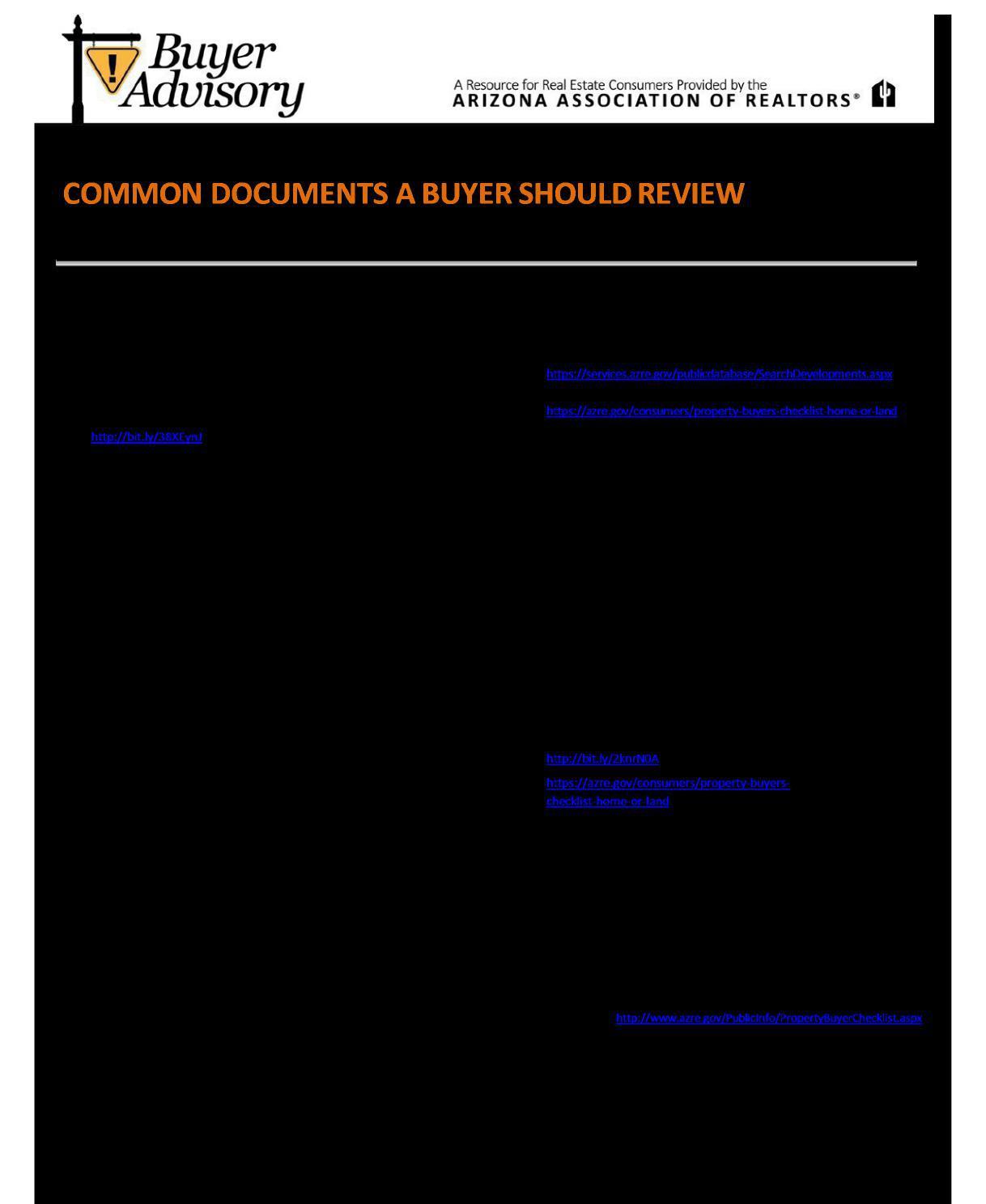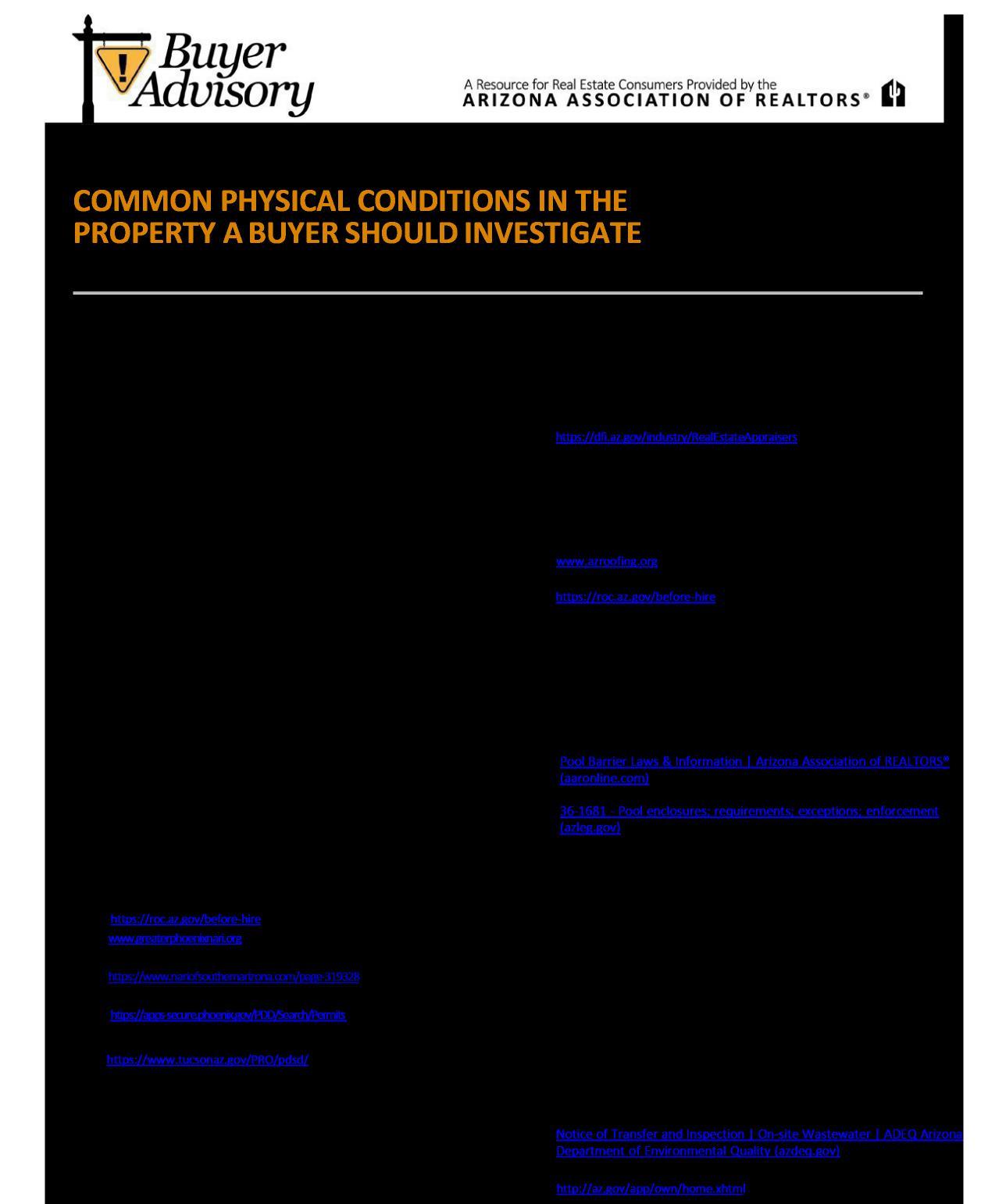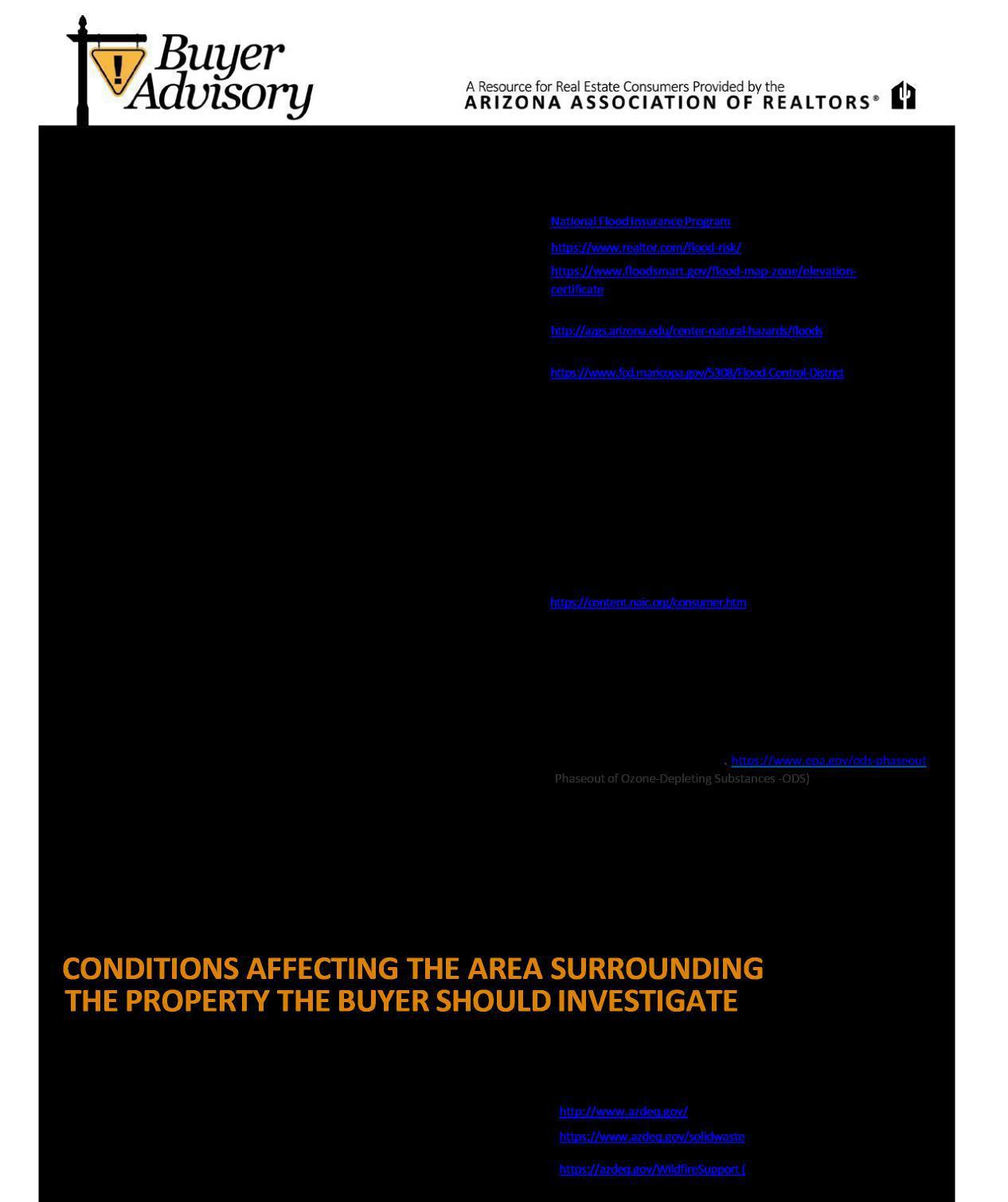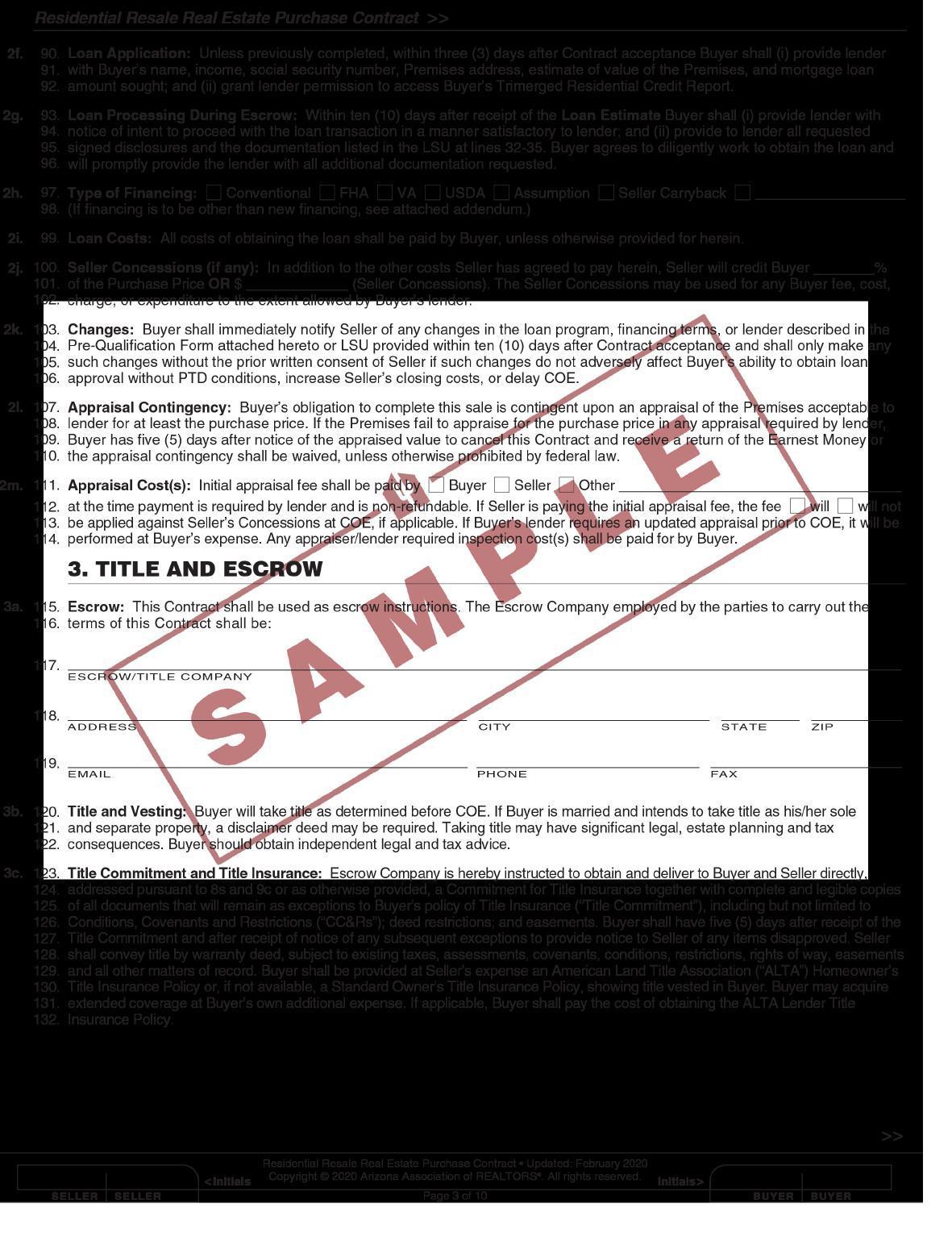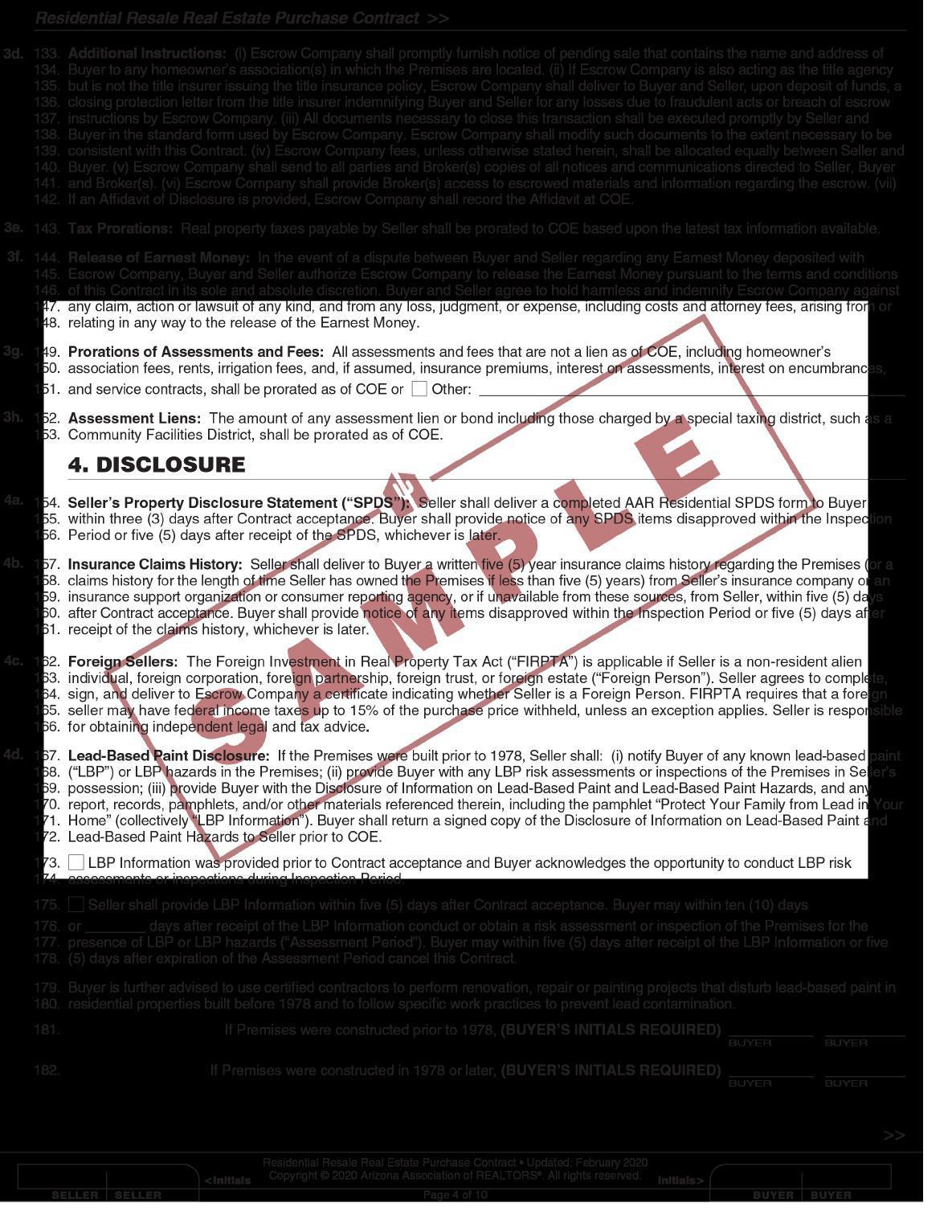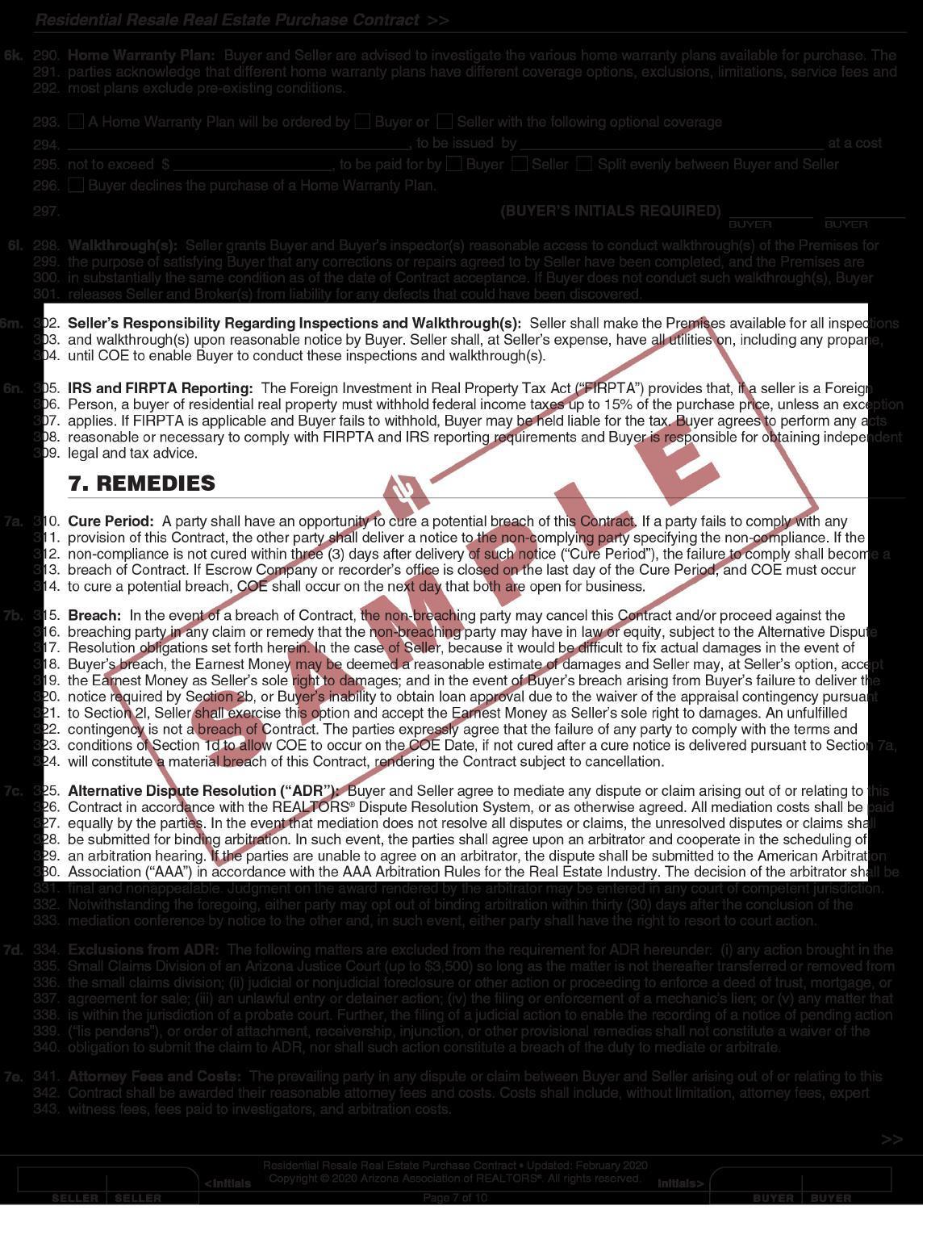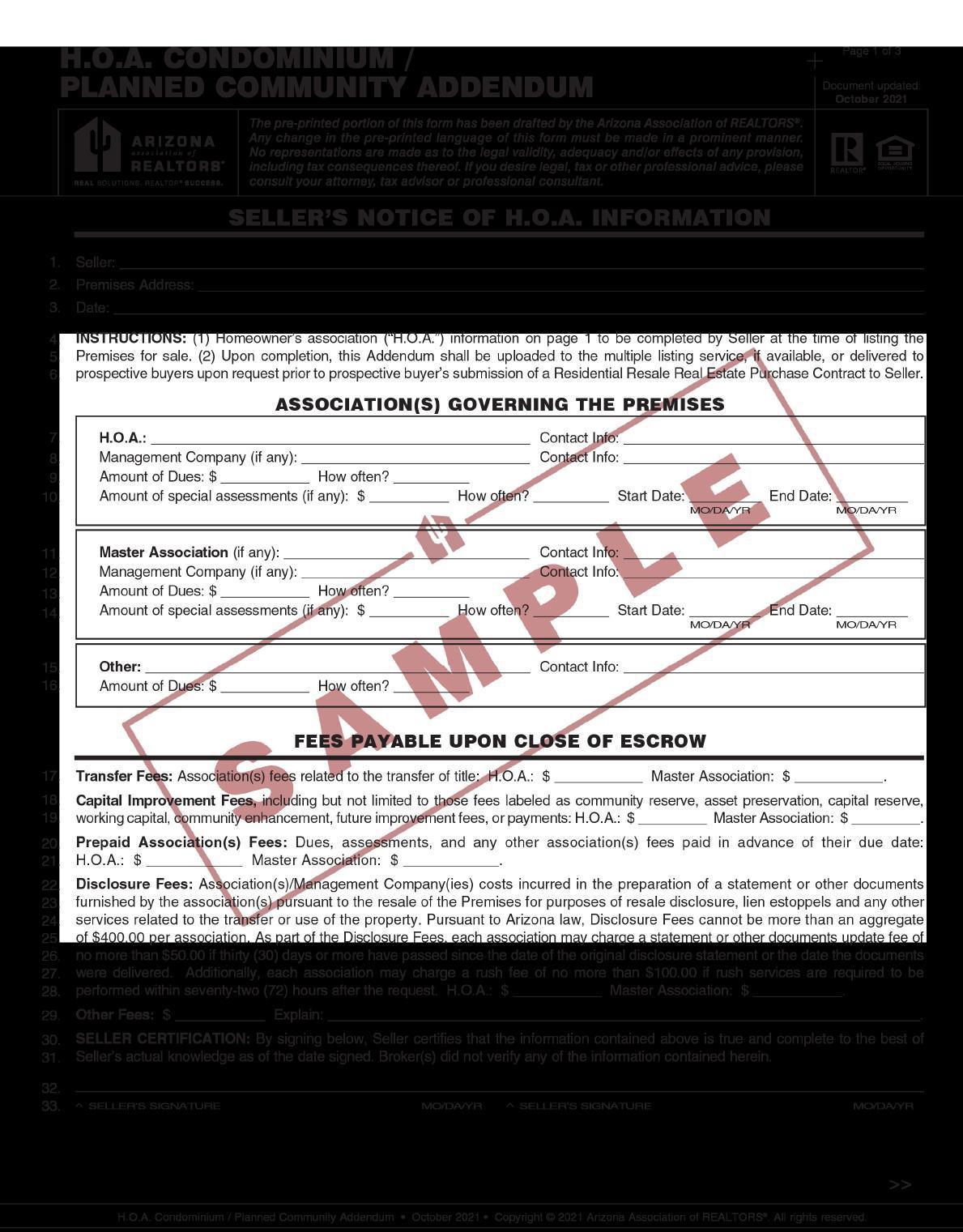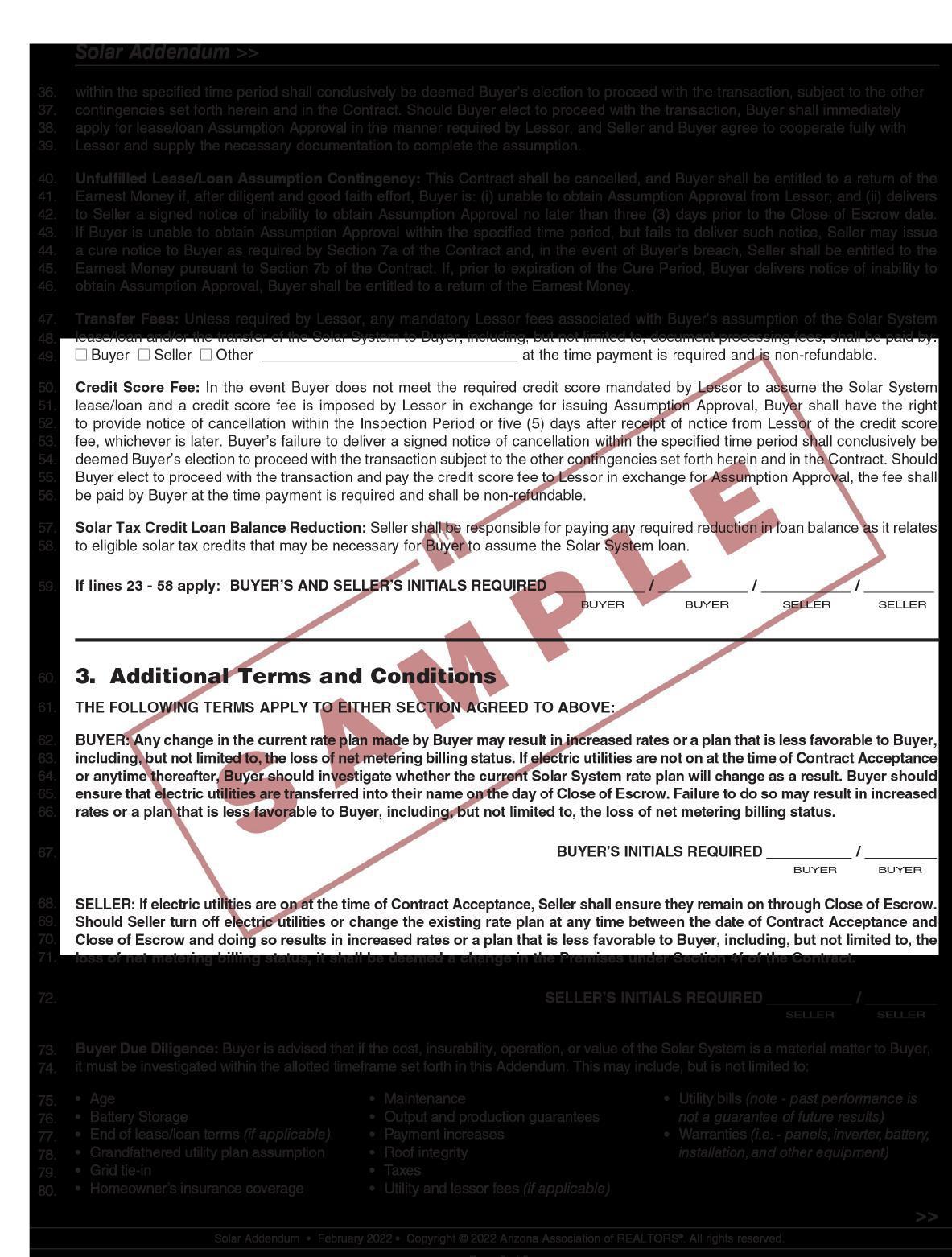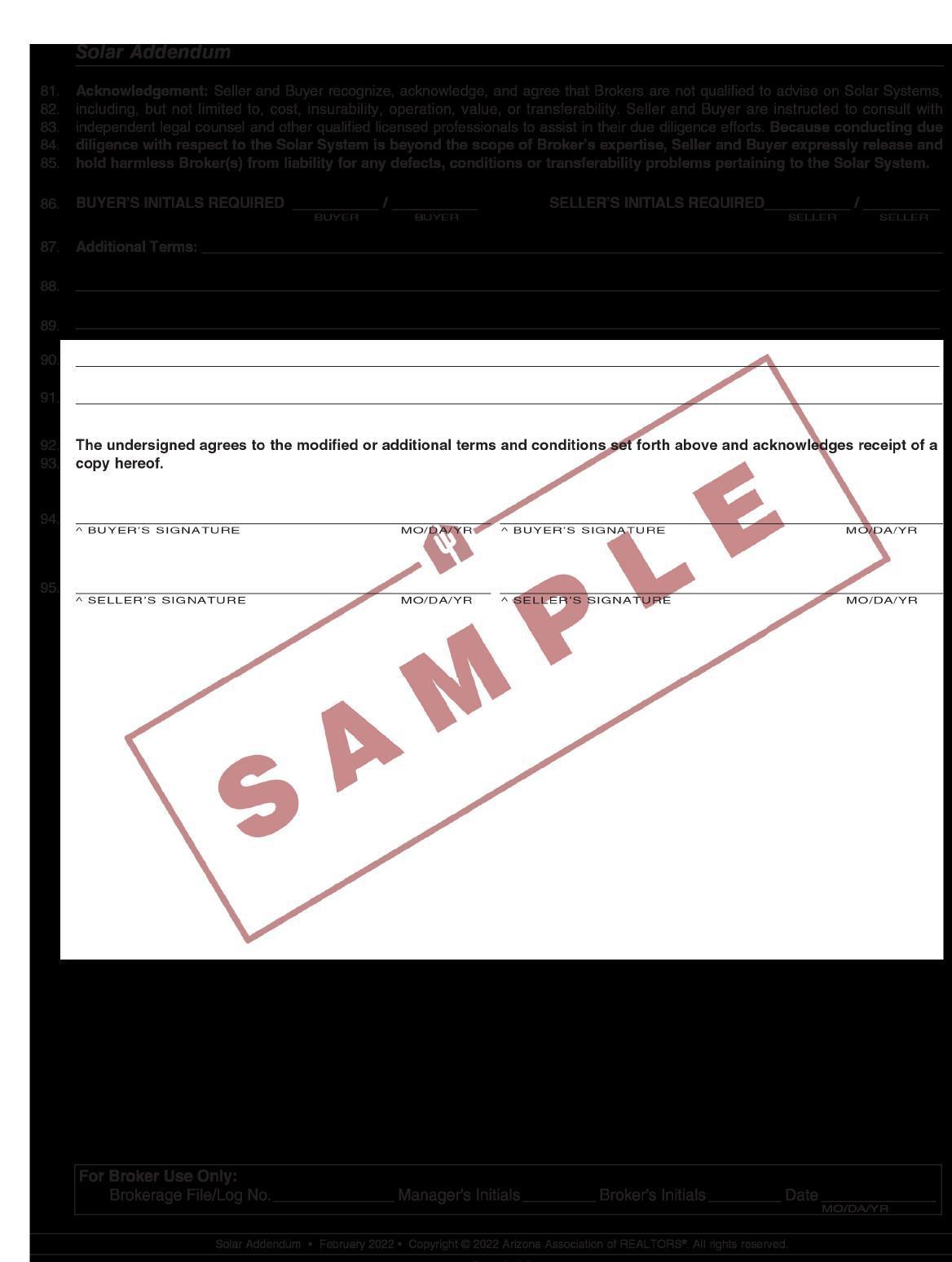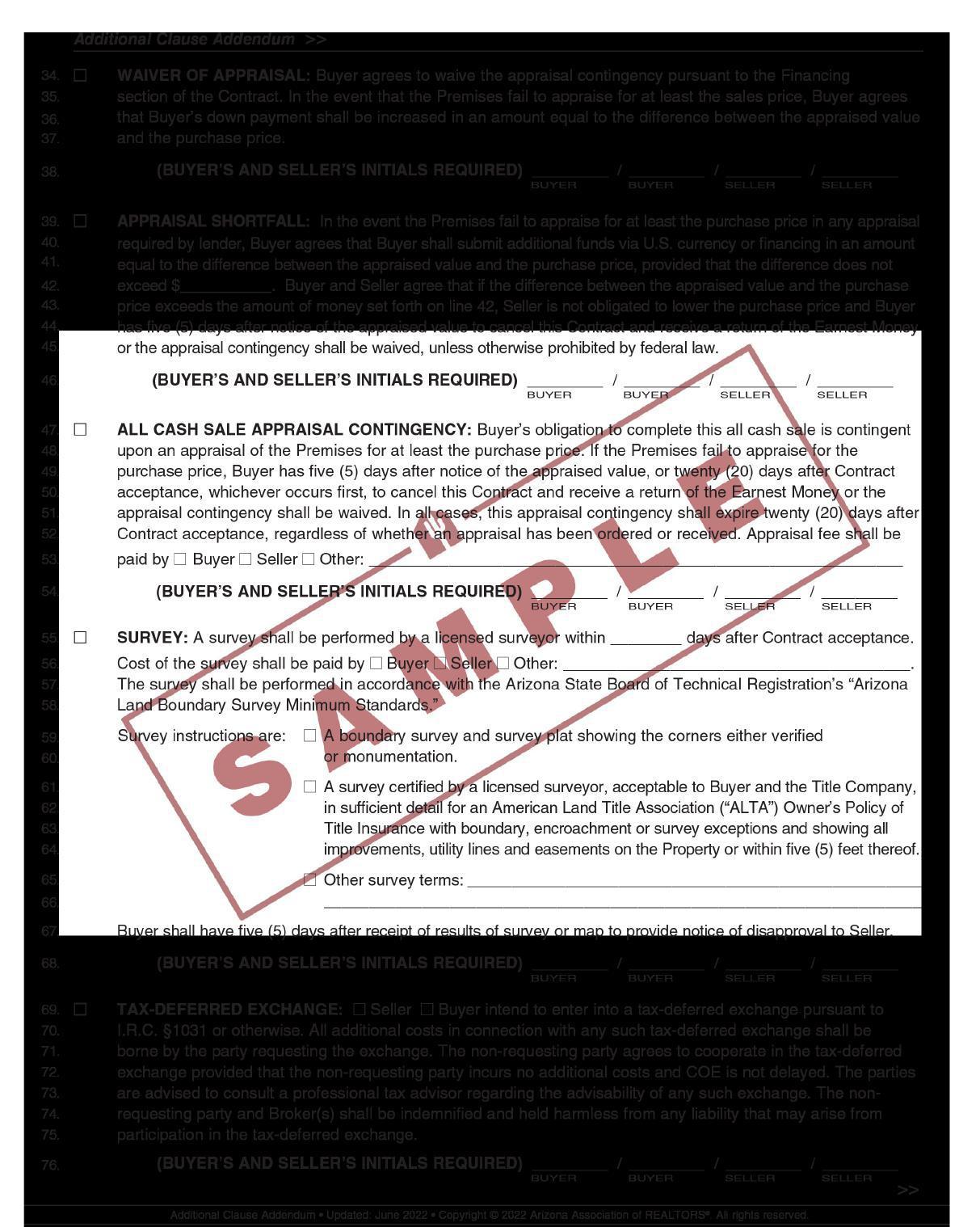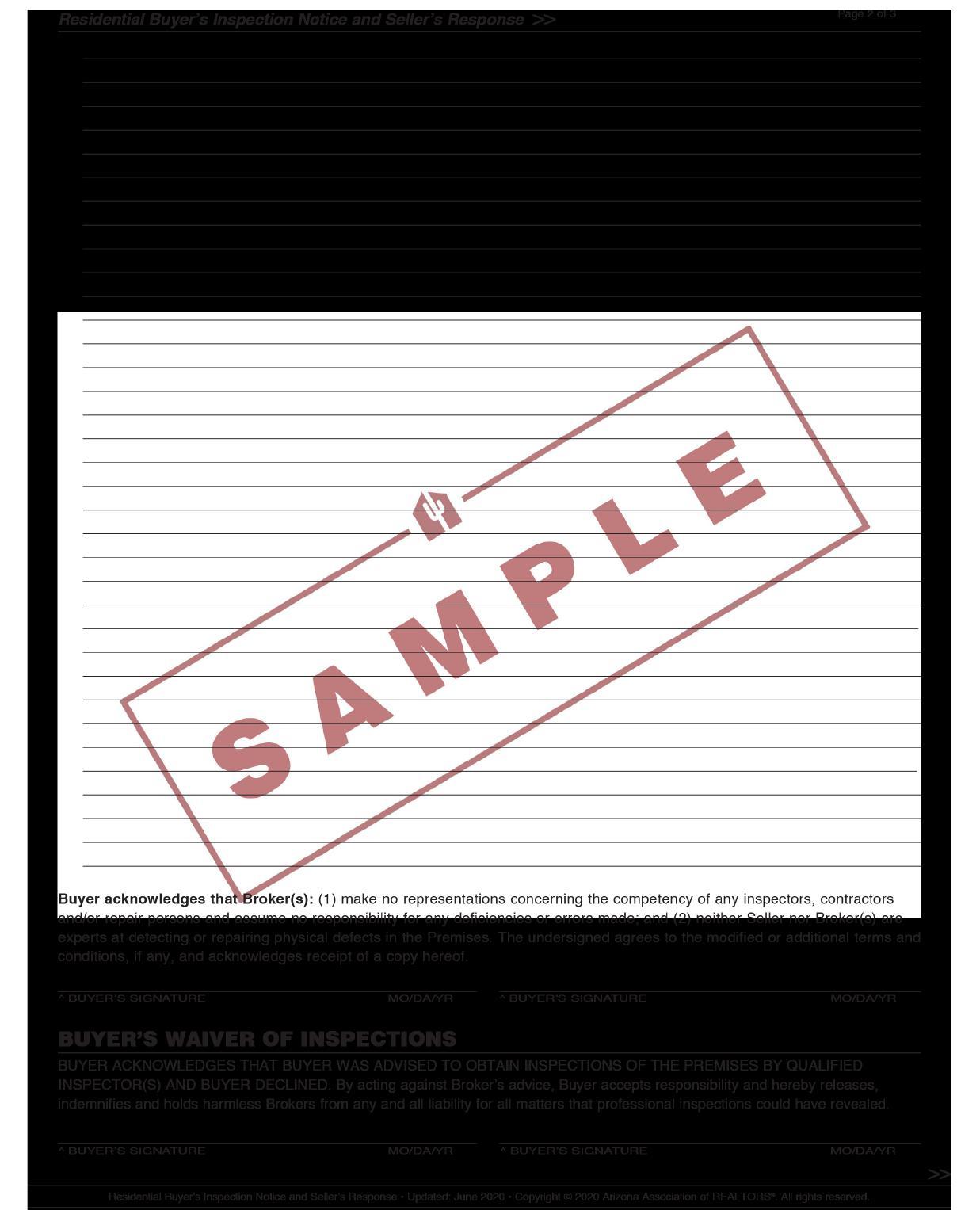












Quick Reference
Key Professionals
Advantages
Rent
Buy:
Sample Mortgage Payment
The
5
What
Process
Closing Terms
Avoid During
What Is Escrow?
Closing Process
The Real Estate Closing Process
What Is Title Insurance
Ways To Take Title
10
Who Pays
Title Problems
Mail-Away Closing
Moving Checklist
Tips For Moving With
Closing Day
What
After
Sample Real Estate Forms

Licensed by the state to represent parties in the transfer of property.
Objectively and independently provides a comprehensive analysis of a home’s major systems and components.
A representative of a bank or other financial institution. They help customers identify their borrowing options and help them understand the terms of their loan.
APPRAISER
Works on behalf of a lender and provides a market analysis of the subject property. An appraiser’s finding is subjective and combined with market findings of sold properties within the surrounding neighborhood.
Helps a homebuyer determine the homeowner’s protection coverage needed and then finds the right insurance policy to fit those needs.
Can give advice on all legal aspects of the real estate transaction. Additionally, they are able to draft and review contracts, help decide how to take title and assist with the closing process. In some states, real estate closings can only be conducted by attorneys.

A non-biased third party who works with all participants to facilitate a successful closing of a real estate transaction. At closing, the closing officer will collect the purchase money funds from the buyer and lender as well as the settlement costs from each party. They disburse the funds in accordance with the closing documents and record the necessary documents to transfer ownership of the property.
Performs title searches to ensure a clear title so a title insurance policy can be issued. In some states, they facilitate the transfer of real estate.
You don’t need to know everything about buying and selling real estate if you hire a real estate professional who does. Henry Ford once said that when you hire people who are smarter than you are, it proves you are smarter than they are. The trick is to find the right person. For the most part, all REALTORS ® cost the same. So Why not hire a professional to represent you in one of the largest purchases in your life!
REALTORS ® act as a buffer. If you’re a buyer of new homes, your REALTOR ® will protect you from the builder’s agents, preventing them from biting or nipping at your heels. If you’re a seller, your REALTOR ® will screen all those phone calls that lead to nowhere from lookie loos and try to induce serious buyers to write an offer immediately.
REALTORS ® either possess extensive knowledge or they know where to find the industry buzz about your neighborhood. They can identify comparable sales and relay these facts to you, in addition to pointing you in the direction where you can find more data on schools, crime or demographics. For example, you may know that a home down the street was on the market for $450,000, but a REALTOR ® will know it had upgrades and sold at $385,000 after 75 days on the market and after twice falling out of escrow.
Contrary to what some people believe, REALTORS ® do not select prices for sellers or buyers. REALTORS ® have valuable knowledge on local market conditions and will help you price your property realistically and fairly. Data such as the average per square foot cost of similar homes, median and average sales prices, average days on market and ratios of list-to-sold prices, among other criteria, will have a huge bearing on what you ultimately decide to do. A REALTOR ® will also help you from overpaying for a property when buying.
Top producing REALTORS ® negotiate well because, unlike most buyers and sellers, they can remove themselves from the emotional aspects of the transaction. It’s part of their job description. Good REALTORS ® are mediators, delivering buyer’s offers to sellers and vice versa. They are professionals who are trained to present their client’s case in the best light and agree to hold client information confidential from competing interests.
Today’s purchase agreements run ten pages or more. Plus, the federal- and state-mandated disclosures or disclosures dictated by local customs. Your REALTOR ® will guide you through the complexity of paperwork that ensues during a home sale or purchase. They will also monitor your transaction while in escrow and handle any problems that may arise.
Think of your REALTOR ® as a trained professional who has the ability to represent you in a very complex transaction! In addition REALTORS ® adhere to a strict code of ethics and are held to a higher standard.
As real estate is the nation’s largest market, its purchase and sale is essential to the health of the U.S. economy. However, these transactions are never without risk. That’s why title insurance has been protecting American homeowners for more than 130 years.
•
No interest-payment deductions
Rental amount may increase at any time
Landlord approval needed for any changes
•
Mortgage interest may be tax deductable
Decorate and make changes, without prior landlord approval
•
No capitalization; your money disappears forever
Rental is temporary and often subject to a 30-day notice
The value of your property may increase in time
Your house will become a home, not a temporary living situation; you are not at the mercy of a landlord







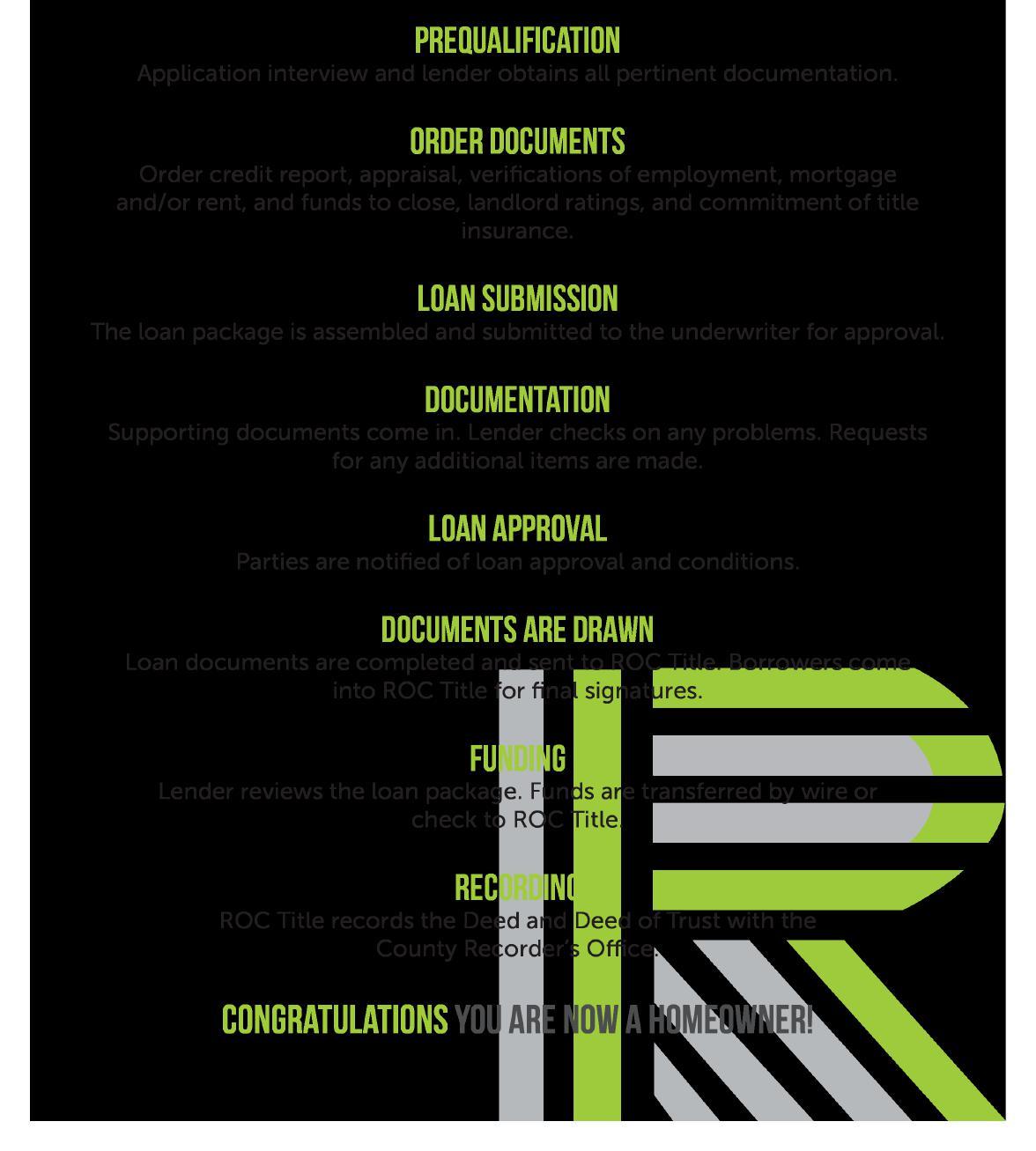
When the housing crisis and economic recession hit, it put many prospective home buyers’ plans on hold, forcing those considering purchasing a home into the rental market. Now, as the economy continues to improve, some of those renters are looking to own.
However, there are many factors to consider when buying a home. When it comes to the closing process, it is a good idea to know the terminology that will be discussed. This can help make the situation much more comfortable and professional for all parties involved. Below are some of the terms that may be discussed during the closing process.
This term reflects the cost of all credit and finances as determined by the length of a year, including the interest rate, points, broker fees, and other credit charges obligated to the buyer.
Like many transactions involving large sums of money, the mortgage process involves a down payment - the amount a home buyer pays in order to make up the difference between the purchase price and the mortgage amount. Some experts advise no less than 10% to 15%. However, any amount over 20% of the purchase price is often recommended, and may be required to avoid having to pay for private mortgage insurance.
PMI is typically required if a borrower puts a down payment that’s less than 20% of the home’s value. The charge is usually included in the monthly mortgage payment in an attempt to protect the lender from possible default.
The Consumer Financial Protection Bureau, or CFPB, requires your lender to issue a Loan Estimate within three business days of receiving your mortgage application. The Loan Estimate details the terms of your loans along with estimated closing costs.
Closing costs may also be referred to as transaction costs or settlement costs and may include various fees and charges associated with finalization. These may include or be related to application fees, title examination, title insurance, property fees, as well as settlement documents and attorney charges.
How you hold title is affected by your marital status. Be sure to make both your lender and closing/ settlement agent aware of any changes in your marital status so that documents can be prepared correctly.
A job change may result in your loan being denied, particularly if you are taking a lower-paying position or moving into a different field. Don’t think you’re safe because you’ve received approval earlier in the process, as the lender may call your employer to re-verify your employment just prior to funding the loan.
After the lender has verified your funds at one or more institutions, the money should remain there until needed for the purchase.

If your loan officer advises you to pay off certain bills in order to qualify for the loan, follow that advice. Otherwise, leave your accounts as they are until your escrow closes.
A major purchase that requires a withdrawal from your verified funds or increases your debt can result in your not qualifying for the loan. A lender may check your credit or re-verify funds at the last minute, so avoid purchases that could impact your loan approval.
“Escrow” is a term that describes the neutral third-party handling of funds, documents, and tasks specific to the closing (or settlement, as it is also known), as outlined on the real estate purchase agreement or sales contract. The purpose of escrow is to facilitate the transaction by managing the disbursement of funds.
In accordance with local custom, the buyer or seller involved in the transaction will select the escrow provider, though they often defer to their real estate agent to make this decision. This provider could be an escrow company, title officer, or title/escrow attorney, depending upon many considerations, including the geographical location of the transaction.
The escrow provider may have a duty to arrange and/or track the requirements and contingencies outlined within the purchase contract. These might include home inspections, the purchase of homeowners insurance, the completion of negotiated repairs, and financing requirements.
Once all transaction contingencies are met, including the execution of all documents necessary to complete the transaction, the escrow company will disburse funds to the seller and other parties, all in accordance with the purchase agreement.
The cost of escrow services is covered by the buyer or seller as determined by local custom, market conditions, or contractual agreements made within the purchase offer.
Once all the tasks described within the sales purchase agreement have been completed and the appropriate funds are disbursed, the transaction is complete and the escrow closes.

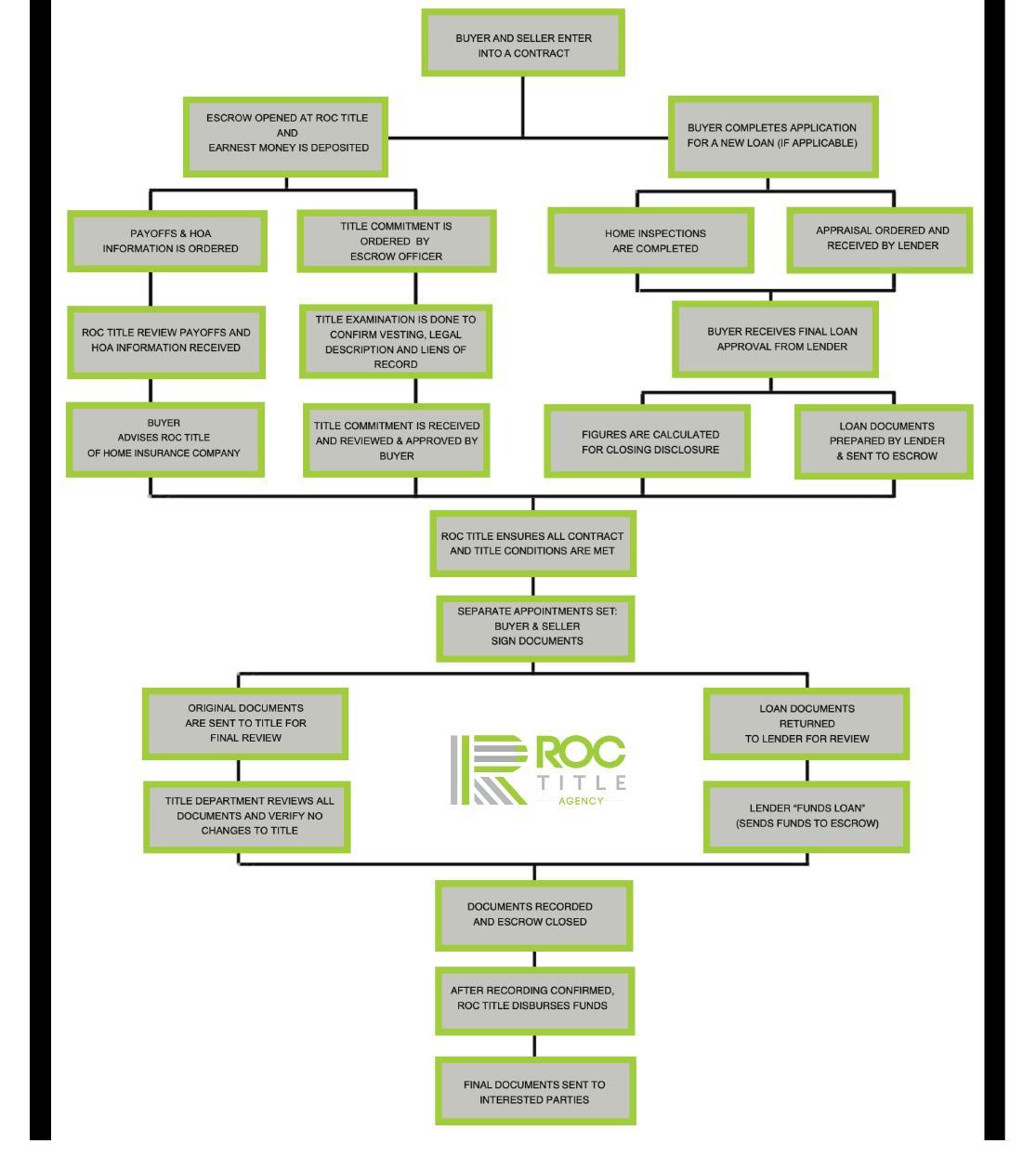
Title insurance protects against covered title defects such as a previous owner’s debt, liens, and other claims of ownership that may have been instituted prior to purchasing the home.
As real estate is the nation’s largest market, its purchase and sale is essential to the health of the U.S. economy. However, these transactions are never without risk. That’s why title insurance has been protecting American homeowners for more than 130 years.
When a piece of real property is financed, purchased or sold, a record of that transaction is generally filed in public archives. Likewise, other events that may affect the ownership of a property are also documented and filed. These may include liens, levies, encumbrances, etc. When a buyer purchases title insurance, the title company searches these records to find (and remedy, if possible) issues that may affect the purchaser’s ownership.
That’s where title insurance differs from traditional insurance models. When you purchase a policy insuring you for matters relating to your car or health, the insurance company assesses the risk of insuring you, and bases its premium on the risk being assumed. With title insurance, the insurer first works to identify the status of ownership, liens and other matters affecting title by collecting documents affecting title from the public records that are statutorily identified for the recording of real estate transactions. This process is called the search. Once the search is complete, the title insurance underwriter can then determine the insurability of the title and list exceptions from coverage and requirements to insure.
Of course, even the most skilled title professionals may not find all title problems. Other risks include matters that are more difficult to identify, such as title issues resulting from filing errors, forgeries, undisclosed heirs, and other unforeseen problems. That’s one reason why your title insurance policy can play a key role in protecting your real estate investment.
When you purchase a new home or other piece of real property by securing a mortgage, you may be required by your lender to purchase a Loan Policy of title insurance. This policy insures the lender against covered title defects up to the amount of insurance. This coverage in favor of the lender lasts for the life of the loan under limited circumstances stated within the policy.
You will also have the option of purchasing an Owner’s Policy of title insurance, which provides insurance directly to the insured owner listed in the policy, and describes the type of real property interest owned. The insurance in both an owner’s and a Loan Policy is subject to the policy provisions, which include the covered risks, exclusions from coverage, the conditions and the exceptions to title listed on a schedule to the policy.
You will pay a one-time premium for both the Loan Policy and the Owner’s Policy at the close of your transaction, based on the total value of your home and the amount of your loan. This is another way in which title insurance differs from other insurance models, where premiums are paid on an ongoing basis. The purchase of a home or other real estate may be the largest financial investment you ever make. Title insurance can give you added peace of mind in knowing that the title to your investment is insured.
An Owner’s Title Insurance Policy is your best protection against potential defects that can remain hidden despite the most thorough search of public records. A Lender’s Title Insurance Policy also exists to protect your mortgage lender’s interest.


To err is human,but when it affects your home ownership rights, those mistakes can be devastating. Clerical or filing errors could affect the deed or survey of your property and cause undue financial strain in order to resolve them.
Prior owners of your property may not have been meticulous bookkeepers – or bill payers. And, even though the former debt is not your own, banks or other financing companies can place liens on your property for unpaid debts even after you have closed on the sale. This is an especially worrisome issue with distressed properties..
Have you ever wondered why you need title insurance? Your home may be new to you, but every property has a history. A thorough title search can help uncover any title defects tied to your property. And, subject to the terms of the policy, your title insurance provides protection for you from title problems that may become known after you close your transaction. Some of these common title issues are:
While the chain of title on your property may appear perfectly sound, it’s possible that a prior deed was made by an undocumented immigrant, a minor, a person of unsound mind, or one who is reported single but in actuality married. These instances may affect the enforceability of prior deeds, affecting prior (and possibly present) ownership.
When a person dies, the ownership of their home may fall to their heirs, or those named within their will. However, those heirs are sometimes missing or unknown at the time of death. Other times, family members may contest the will for their own property rights. These scenarios – which can happen long after you have purchased the property – may affect your rights to the property.
Unfortunately, we don’t live in a completely honest world. Sometimes forged or fabricated documents that affect property ownership are filed within public records, obscuring the rightful ownership of the property. Once these forgeries come to light, your rights to your home may be in jeopardy.
When it comes to owning a home, three can be a crowd. At the time of purchase, you may not know that a third party holds a claim to all or part of your property – due to a former mortgage or lien, or non-financial claims, like restrictions or covenants limiting the use of your property.
You may own your new home and its surrounding land, but an unknown easement may prohibit you from using it as you’d like, or could allow government agencies, businesses, or other parties access to all or portions of your property. While usually non-financial issues, easements can still affect your right to enjoy your property.
You may have seen several surveys of your property prior to purchasing, however, other surveys may exist that show differing boundaries. Therefore, a neighbor or other party may be able to claim ownership to a portion of your property.

When a property owner dies with no apparent will or heir, the state may sell his or her assets, including the home. When you purchase such a home, you assume your rights as owner. However, even years later, the deceased owner’s will may come to light and your rights to the property may be seriously jeopardized.
Common and similar names can make it possible to falsely “impersonate” a property owner. If you purchase a home that was once sold by a false owner, you can risk losing your legalclaim to the property.
PLAY IT SAFE - These and other issues are often covered by an Owner’s Policy of title insurance. When you buy a home, make sure you’re protecting that investment with title insurance.
This chart represents who customarily pays what costs. Consult a professional before negotiating any costs.
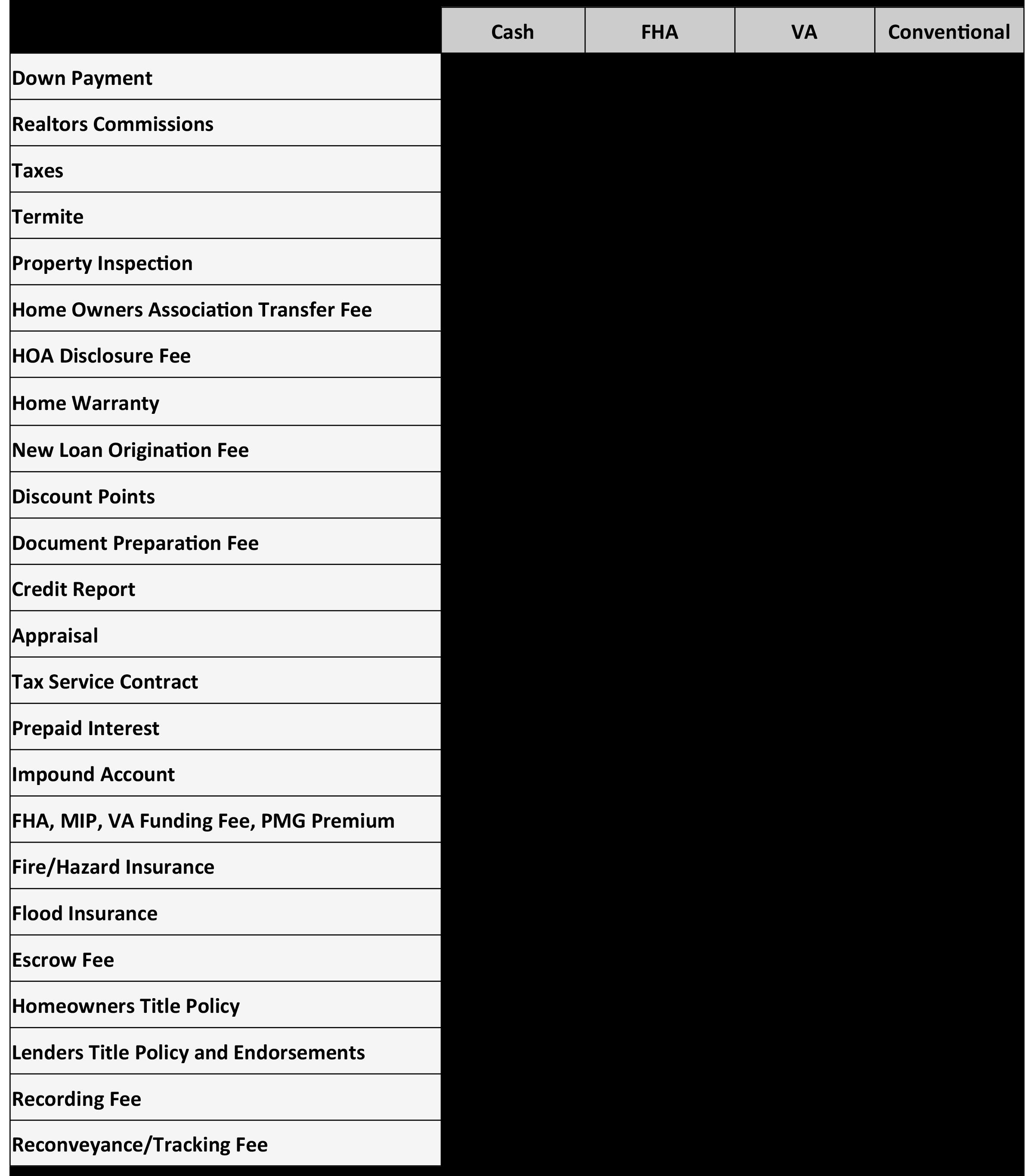
As opportunities for real estate transactions expand across county and state lines, the frequency of mail-away closings is increasing. If you are involved in a closing that requires the mailing of documents, here are some tips that can help you avoid delays:

Inform your closing/settlement agent of the need to mail documents as soon as possible. This will allow them to better coordinate the document preparation and signing process.
Provide your closing/settlement agent with a physical address and the best phone number for each party involved in the transaction. Most overnight delivery services will not deliver to a P.O. Box.
Be aware that many lenders have specific closing practices that may differ from local customs. Not all lenders allow documents to be signed in advance of the closing date, and some require that the documents be signed in the presence of an attorney or at a local settlement agent’s office.
Allow sufficient turnaround time for the documents to be signed. This may decrease the chances of funding delays due to errors in the signing process. In order to disburse funds on a transaction, your closing/settlement agent may require the original documents to be returned and in their possession.
The minimum time required to send and receive documents is three business days.
Post Office Bank
Credit card companies
Friends and relatives
Insurance companies — Life, health, fire, auto
Automobile — Transfer of car title registration, driver’s license
Utility companies — Gas, light, water, telephone, cable
Arrange for any refunds of deposits
Arrange for service in new location
Home delivery — Laundry, newspaper, magazine subscriptions
School records — Ask for copies or transfer children’s school records
Medical records — Medical, dental, prescription histories
Ask doctor and dentist for referrals
Transfer needed prescriptions, x-rays, etc.
Church, clubs, civic organizations — Transfer memberships and get letters of introduction
Empty freezers — Plan use of foods
Defrost freezer/refrigerator
Have appliances serviced for moving
Contact utility companies to disconnect services — Water, power, cable, trash, etc.
Stay in contact with your mover — Confirm the following: insurance coverage, packing and unpacking labor, time and date of scheduled move, details of payment
Carry currency, jewelry, and important documents yourself
Let a close friend or relative know route and schedule you will travel including overnight stops; use him/her as message headquarters
Have appliances serviced for moving
Double-check old closets, drawers, shelves to be sure they are empty
Leave old keys needed by new owner
Moving to a home in a new location can be an exciting adventure, but it can also be the cause of stress and confusion for household pets. To minimize the trauma, here are a few tips that may help make your pet’s transition a little easier.
Schedule an appointment with the veterinarian for a check-up prior to moving.
Obtain a copy of your pet’s medical history along with rabies certifications that state when and where your pet was vaccinated.
Make sure the supply of current medications will last until a veterinarian in your new location can be found to provide refills.
Proper identification is essential. Be certain that any required license tags are secured properly and the contact information is current.
Pets can become anxious with the increase of activity prior to a move. To eliminate the threat of them misbehaving or running off, consider boarding your pet during the most hectic of moving days.
If you are moving your pet by car, be sure to take a favorite toy or two, a leash for when stops are made, and plenty of water to keep your pet hydrated.
Requirements for the movement of pets across state lines are set by each individual state. Contact the State Veterinarian in your new location to obtain the most current information.
Long-distance moves may require an overnight stay. People and pet-friendly accommodations can be found by searching a number of internet sites.
Once you and your pet have arrived in your new location, allow sufficient time for the new neighborhood adjustment to be made. It could take a few days or a few weeks for your pet to adapt to their new surroundings.
Carry a current photograph of your pet. If your pet is lost during the move, a photograph will make it much easier to search effectively.
Whether you are purchasing a home or selling a house, knowing what to expect and being prepared at the closing can help eliminate stress and result in a pleasant experience. We understand how important this transaction is to you, and we are committed to consistently providing a level of service that prepares you for this final step in your real estate transaction.
Although the settlement process can vary from state to state, here are some common items that may be required at closing to help the process go as smoothly and quickly as possible.
•
• •
Two forms of identification are typically required at closing, including one of the following:
Valid U.S. Driver’s License or non-driver I.D.
Valid Canadian or Mexican Driver’s License issued by the Official Agency
Current United States or Foreign Passport Foreign Passport must have been stamped by U.S. Immigration and Naturalized Service
In the event you are required to bring funds to closing, we cannot accept personal checks or cash. If you prefer to wire your funds, contact us for bank routing instructions.
If you will be bringing a proceeds check from another settlement, contact us to verify the acceptance of those Wfunds - we do not automatically accept all checks.
A hazard policy, also known as homeowner’s insurance, with the lender designated as the insured holder of the mortgage, is required on most loans. Evidence of hazard insurance, including a paid receipt, must be provided prior to closing.
State-specific laws may require the spouse of the parties in title, even though their name does not appear on the deed, to sign certain documents when obtaining a mortgage. If anyone is unable to attend closing, contact us to arrange a power of attorney or closing by mail.
You have been supplied with a set of keys that unlocks the doors to your new home. To ensure security, change the locks upon moving in.
If you have not already done so, contact the local service providers to make arrangements for electricity, gas, water, phone and cable or satellite services. While some providers may need as little notice as a day to activate your services, it’s best to give them a few weeks’ notice.
You may have received a First American Title Owner’s Policy of Title at the closing table. If this service is not available in your area, you will receive your policy by mail in the weeks following the closing.
Once recorded in the official county records, the original deed to your home will be mailed directly to you.
At the closing, written instructions were provided with details for making your first loan payment. If you have questions about your tax and insurance escrows, please contact your closing/settlement agent.
At the closing, property taxes were prorated between the buyer and the seller based on occupancy time in the home. You maynot receive a tax statement for the current year on the home you buy; however, it is your obligation to make sure the taxes are paid when due. Check with your lender to find out if taxes are included with your payment and if the tax bill will be paid by the lender from escrowed funds.
If the home you purchased is in a homestead state, you may be required to declare homestead or file a homestead exemption. A homestead exemption reduces the value of a home for state-tax purposes. You can check with the local county recorder’s office to determine eligibility, filing requirements and deadlines.
Your local Post Office can provide the necessary Change of Address forms to expedite the delivery of mail to your new home. You can speed up the process by notifying everyone who sends you mail of your new address and the date of your move. Many bills provide an area for making an address change.a home for state-tax purposes. You can check with the local county recorder’s office to determine eligibility, filing requirements and deadlines.
It is recommended you keep all records pertaining to your home together in a safe place, including all purchase documents, insurance, maintenance and improvements.


